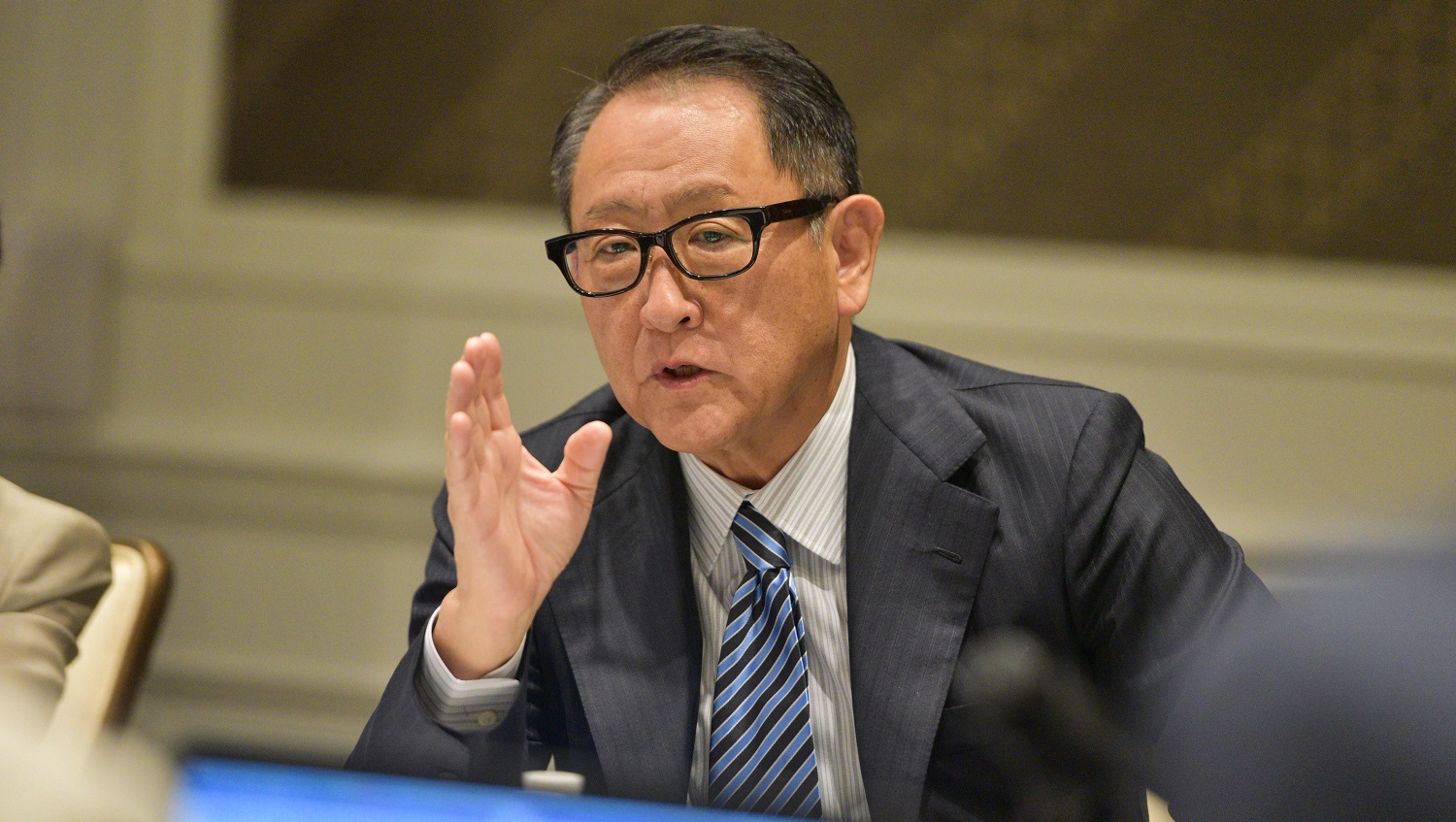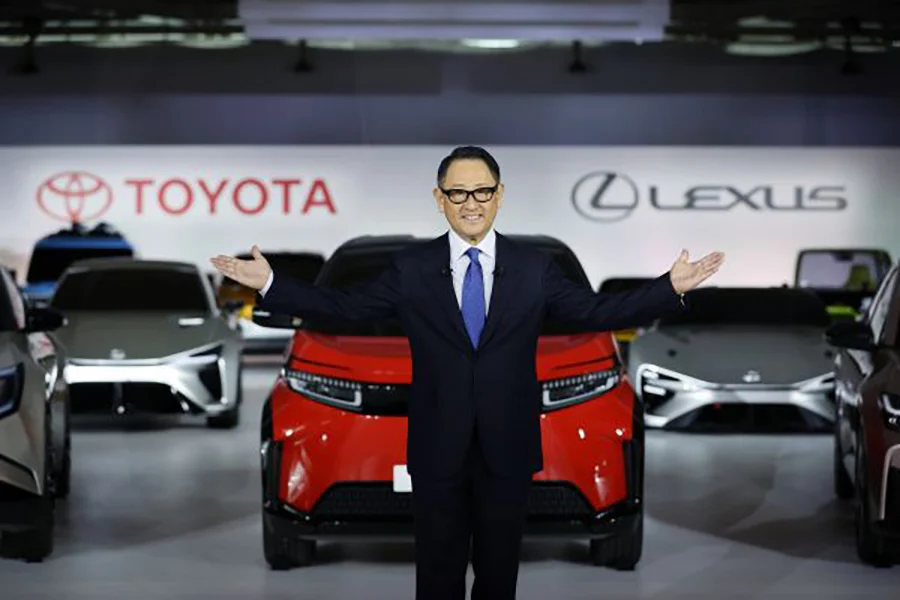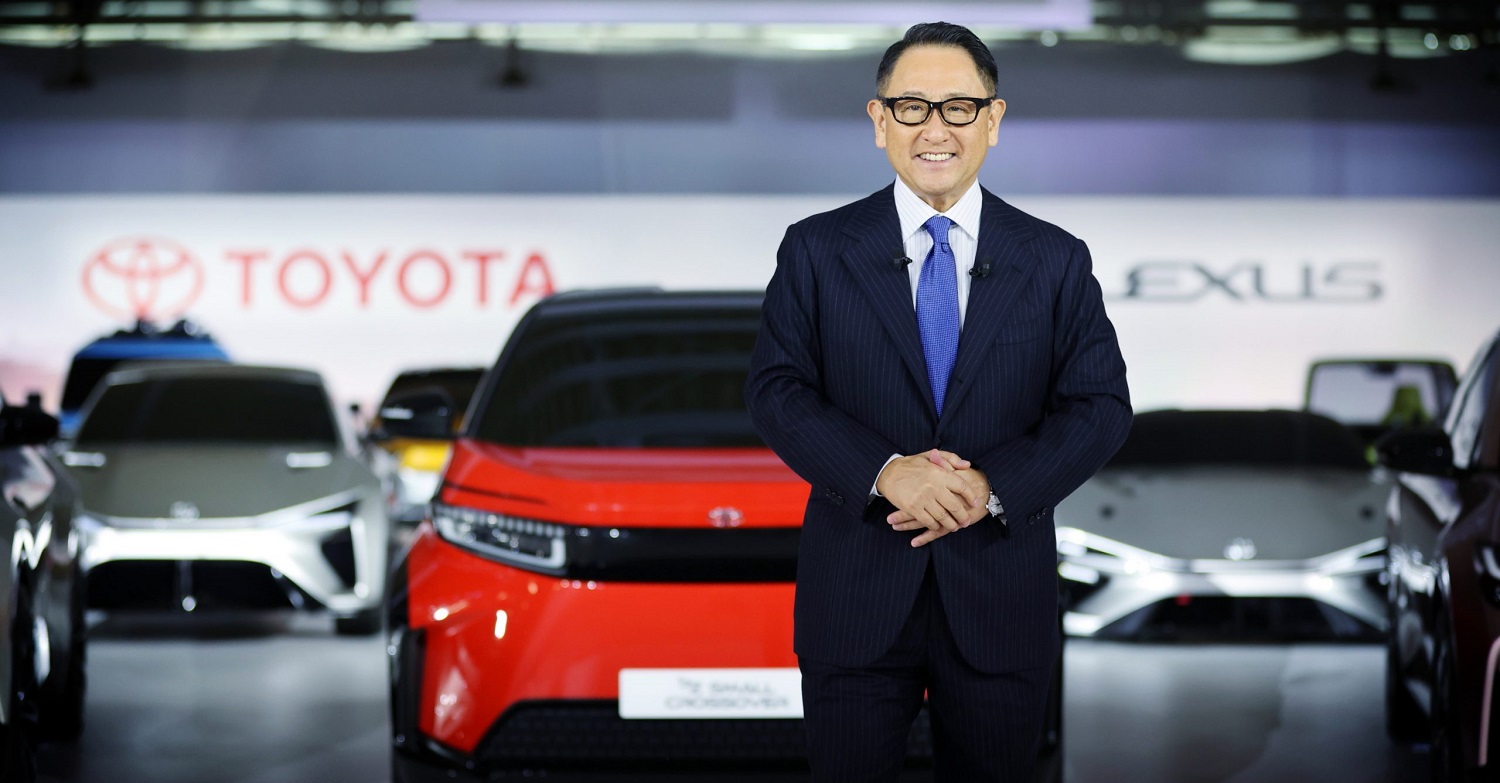
There are reports that has been delayed yet again...
news-extra-space

 Toyoda said during the annual dealer gathering for Toyota in Las Vegas, "Playing to win for me also entails acting uniquely. The strategy that will keep us in the winner's circle the longest is to take actions that others might doubt but that we believe in."
Also Read: Toyota’s CEO Says California’s 2035 Rules Are ‘Difficult’ to Meet
Toyota CEO, Toyoda notes that its objectives for EVs are still to serve as many consumers as possible with various powertrains. By 2025, the powertrains will comprise all-electric battery models, hybrid and plug-in vehicles, and hydrogen fuel cell vehicles.
The CEO stated that he doesn't think all-electric vehicle adoption would occur as rapidly as policy authorities and rivals anticipate. He listed several factors as the explanation, including a lack of infrastructure, high costs, and global variations in customer preferences.
Toyoda said during the annual dealer gathering for Toyota in Las Vegas, "Playing to win for me also entails acting uniquely. The strategy that will keep us in the winner's circle the longest is to take actions that others might doubt but that we believe in."
Also Read: Toyota’s CEO Says California’s 2035 Rules Are ‘Difficult’ to Meet
Toyota CEO, Toyoda notes that its objectives for EVs are still to serve as many consumers as possible with various powertrains. By 2025, the powertrains will comprise all-electric battery models, hybrid and plug-in vehicles, and hydrogen fuel cell vehicles.
The CEO stated that he doesn't think all-electric vehicle adoption would occur as rapidly as policy authorities and rivals anticipate. He listed several factors as the explanation, including a lack of infrastructure, high costs, and global variations in customer preferences.
 He highlighted that it will be challenging to comply with new legislation that requires the elimination of conventional internal combustion engine automobiles by 2035. He also stressed that EV adoption would take longer than expected.
In addition, Toyoda predicts that there will be severe shortages of lithium and nickel suitable for batteries in the upcoming years, which will cause issues with supply chains and manufacturing.
Following the success of the Toyota Prius, Toyota's objective is to achieve carbon neutrality by 2050 by using both plug-in hybrids and electric vehicles. The EV market is still developing, and most consumers have not yet realized the advantages of choosing an EV over a conventional internal combustion engine.
The course of Toyota's ambitions is yet uncertain. But when compared to its rivals, the company's "win-win" strategy seems more practical.
He highlighted that it will be challenging to comply with new legislation that requires the elimination of conventional internal combustion engine automobiles by 2035. He also stressed that EV adoption would take longer than expected.
In addition, Toyoda predicts that there will be severe shortages of lithium and nickel suitable for batteries in the upcoming years, which will cause issues with supply chains and manufacturing.
Following the success of the Toyota Prius, Toyota's objective is to achieve carbon neutrality by 2050 by using both plug-in hybrids and electric vehicles. The EV market is still developing, and most consumers have not yet realized the advantages of choosing an EV over a conventional internal combustion engine.
The course of Toyota's ambitions is yet uncertain. But when compared to its rivals, the company's "win-win" strategy seems more practical.
Leave a Reply






